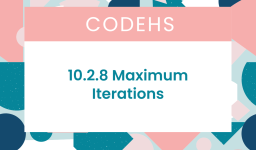Question: What consideration should researchers take into account when designing an online study that presents participants with misleading information?
Answer: Researchers cannot guarantee that participants reached the end of the study, and read and understood the debrief. Participants can use a search engine to figure out the deception and effectively undo the manipulation.
Adding attention or logic checks can affect the way participants understand misleading information. The prevalence of bots completing online studies makes it difficult for researchers to gather reliable data, thus unable to determine whether the manipulation was effective.
This question is a part of Internet-Based Research – SBE Answers.
Broad Description
When designing an online study that presents participants with misleading information, researchers should consider various factors to ensure the study is ethical and yields accurate results. Some key considerations include:
- Informed consent: Ensure that participants are fully informed about the study’s purpose, procedures, potential risks, and benefits. While deception might be necessary in certain cases, minimizing any potential harm and debriefing participants afterward is crucial.
- Debriefing: Researchers should provide a thorough debriefing at the end of the study to clarify the purpose of the deception, the reasons behind it, and how the collected data will be used. The debriefing should also allow participants to withdraw their data if they feel uncomfortable with the use of deception.
- Attention and logic checks: While adding attention or logic checks can help ensure participants are engaged, they should be carefully designed to not interfere with the manipulation. Consider using unobtrusive checks that do not reveal the study’s purpose or the deception involved.
- Data quality: Researchers should employ strategies to identify and filter out bots or low-quality responses, such as incorporating CAPTCHAs, response time analysis, and other validation measures. This will help improve data reliability and the effectiveness of the manipulation.
- Participant privacy: Ensure that the participants’ privacy is protected and their personal information is kept confidential. This includes using encrypted data storage, anonymizing data, and avoiding collecting unnecessary personal information.
- Ethical approval: Obtain approval from an institutional review board (IRB) or ethics committee before conducting the study. This helps to ensure that the research design and methods are ethically sound and meet the required standards.
- Minimizing harm: Researchers should carefully consider the potential harm that may result from the use of deception and implement measures to minimize any negative effects on participants.
- Alternatives to deception: Where possible, researchers should explore alternative research designs that do not involve deception. Deception should only be used when it is essential to answer the research question and no other viable options are available.



